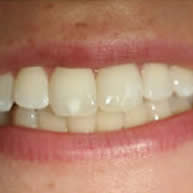Your “third molars”, which are the molars in the very back that are the last to erupt, usually start to appear during the late teen years. They may not emerge for everyone, but when they do show up they are often problematic. Most people’s jaws don’t have room for them, and sometimes they are impacted and unable to erupt at all. Here are some common symptoms that you can watch for so you’ll know when your wisdom teeth might be the culprit.
The main thing many people notice is pain as their wisdom teeth develop. These teeth in the far back of your mouth, often two upper and two lower teeth, are very unpredictable. Sometimes they erupt sideways or crooked, causing your other teeth to become misaligned or overcrowded. If your wisdom teeth erupt, you might see them poking through your gums and creating an area of tenderness, inflammation, and redness. It can be painful to eat and brush your teeth. When wisdom teeth pain is very bothersome, dentists usually recommend removing them.
You may be one of the lucky people who don’t experience wisdom tooth pain. However, there are a host of other symptoms associated with these teeth. Some of these include:
- Sore throat
- Fever
- Difficulty swallowing
- Facial swelling
- Nausea
- Pus
- Lymph gland swelling
- Inflamed gums
- Bad breath
- Problems chewing and brushing
- Cysts around impacted wisdom teeth
Any of the above symptoms warrant a visit to your dentist. Even if wisdom teeth aren’t the cause, you should find out what’s behind these problems. If your dentist determines that your wisdom teeth are impacted, you will be advised to have them surgically removed usually by an experienced oral surgeon. Wisdom teeth extraction is a common procedure, so you shouldn’t hesitate to follow your dentist’s recommendation to take care of any problems with these teeth. Once you have recovered from this surgery, you will be glad the symptoms are gone and you no longer have to worry about your wisdom teeth.
We treat patients from Clinton NJ and the surrounding area






